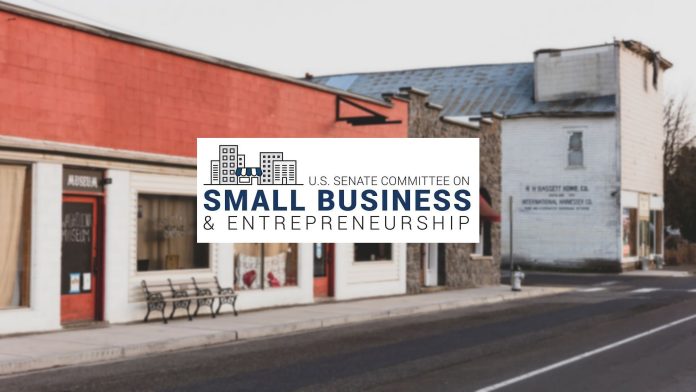Concerns are mounting among small business owners regarding the long-term impact of tariffs instituted during the Trump administration. At a recent Senate Small Business and Entrepreneurship Committee hearing, Ranking Member Edward J. Markey (D-Mass.) underscored how these tariffs jeopardize the survival of small manufacturers. In an era where uncertainty looms, this dialogue raises significant questions for small business owners aiming to navigate an unpredictable economic landscape.
Markey’s comments come in the wake of testimony from Julie Robbins, CEO of EarthQuaker Devices, a small manufacturing firm based in Akron, Ohio. She detailed how the current trade policy hinders small manufacturers from operating effectively and reinvesting in growth, echoing the concerns of many in the sector. “U.S. manufacturers are being crushed by tariffs on both ends: as importers buying parts and as exporters facing retaliatory tariffs,” Markey stated, emphasizing the dual challenges posed by these policies.
The environment surrounding small businesses has dramatically shifted. Amid discussions of a manufacturing resurgence, many are questioning the feasibility of such a boom when foundational costs continue to rise due to tariffs. Robbins articulated a sentiment that resonates deeply: “The idea that the government can abruptly change the playing field with no apparent concern for the impact” undermines their ability to invest and grow.
To address these issues, Markey, along with Senators Chuck Schumer (D-N.Y.) and Mazie Hirono (D-HI), introduced the Small Business Liberation Act. This legislation aims to exempt over 34 million small businesses from tariffs, which many argue are disproportionately affecting them compared to larger corporations. “The Trump Tariffs are not a recipe for a manufacturing boom. They are a recipe for manufacturing doom,” Markey remarked, emphasizing the urgency of the situation.
Small business owners have much to consider regarding these developments. The potential for increased operational costs directly impacts pricing strategies and competitiveness. For manufacturers relying on imported components, these additional costs can eat into margins and disrupt product pricing. “If the objective of this committee is to increase investment in the USA, then they must consider how to repair the trust lost by those who have already invested heavily,” Robbins added, highlighting the need for action to restore confidence in the marketplace.
Many small manufacturers may also face cash flow challenges as tariffs cut into profits. With limited resources for absorbing increased costs, owners may need to make difficult decisions about layoffs or scaling back operations. These obstacles could lead to wider economic repercussions if small businesses falter.
The response from lawmakers isn’t limited to rhetoric; they are pushing for specific actions to alleviate the effects of these tariffs on the small business sector. Markey’s recent correspondence with prominent government officials, including Small Business Administrator Loeffler and U.S. Trade Representative Jamieson Greer, calls for immediate intervention to shield small enterprises from these financial strains. The disproportionate impact on small manufacturers compared to tech giants like Apple and Google continues to be a focal point in the ongoing discourse.
Small business owners should be proactive in assessing how these tariff policies affect their operations. Strategies may include adjusting supply chain logistics or exploring local sourcing options to mitigate reliance on imported materials. Understanding the potential for policy change is vital; proactive engagement with local representatives may lead to a dialogue about the unique challenges facing small businesses.
In this dynamic landscape, staying informed and adaptable is crucial for small business owners. The change in tariff policy may offer them a pathway to regain competitiveness and stability, but until then, navigating current regulations requires vigilance and strategic foresight. The economic future for small manufacturers is uncertain, yet resilience remains a hallmark of their endeavors as they advocate for a fairer, more balanced approach to trade.
For further details on the discussions surrounding this topic, you can read the original press release here.
Image Via Envato: Mint_Images



